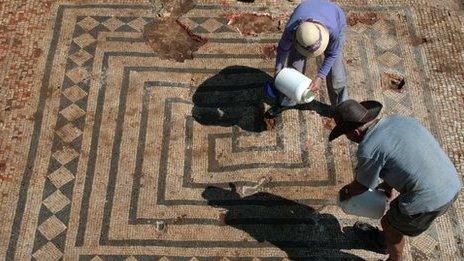Pre-Roman town found during Bournemouth University dig
- Published
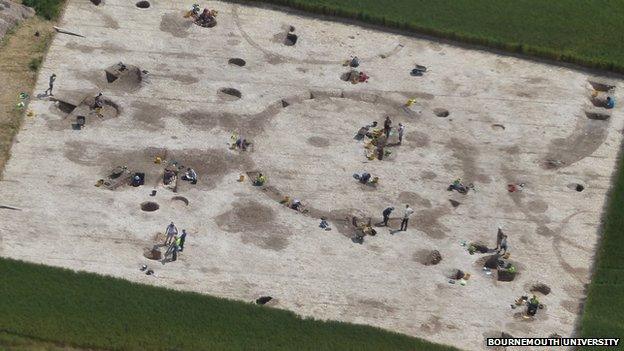
The dig revealed an Iron Age township of at least 150 roundhouses
A pre-Roman town of 150 roundhouses has been found by university students during an archaeological dig in Dorset.
The discovery of the town lying along a hill-slope near Winterborne Kingston has been described as "extremely significant" by archaeologists.
Miles Russell, of Bournemouth University, said: "What we've discovered is one of the earliest and largest open settlements in Britain."
It is hoped the finds will show how life was before the Roman invasion.
Animal remains, a number of quern-stones used for grinding corn to make bread, weaving and metalworking materials were also uncovered.
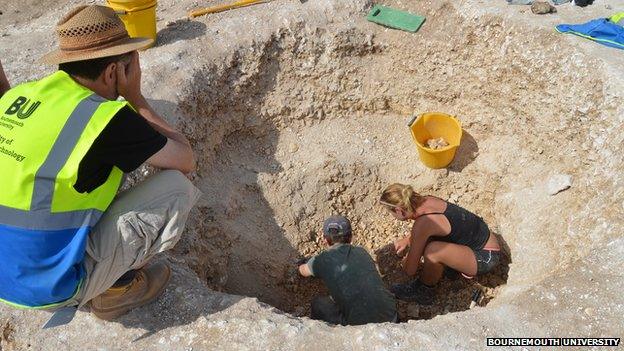
Remains of 16 Iron Age roundhouses found by the students have been examined during the dig
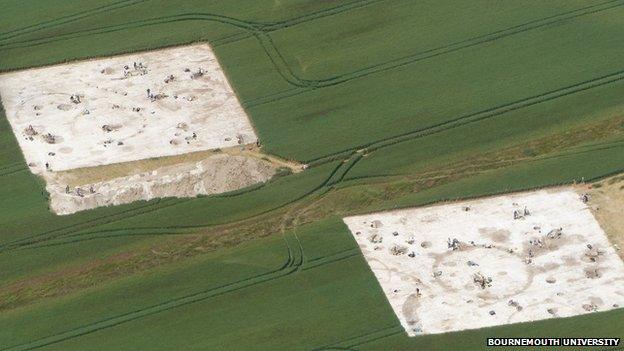
It is hoped the finds will reveal what life was like before the Roman invasion
Paul Cheetham, senior lecturer in archaeological sciences and project co-director, said: "It exposes the myth that everyone lived in protected hill forts - these inhabitants lived in this fertile farmland, away from the traditional hill forts we are all used to hearing about."
The students were taking part in the Durotriges Project, an archaeological field school run annually by the university, studying the transition from the late Iron Age to the early Roman period in southern England.
Students have uncovered Roman villas and skeletal remains during previous digs.
- Published1 July 2014
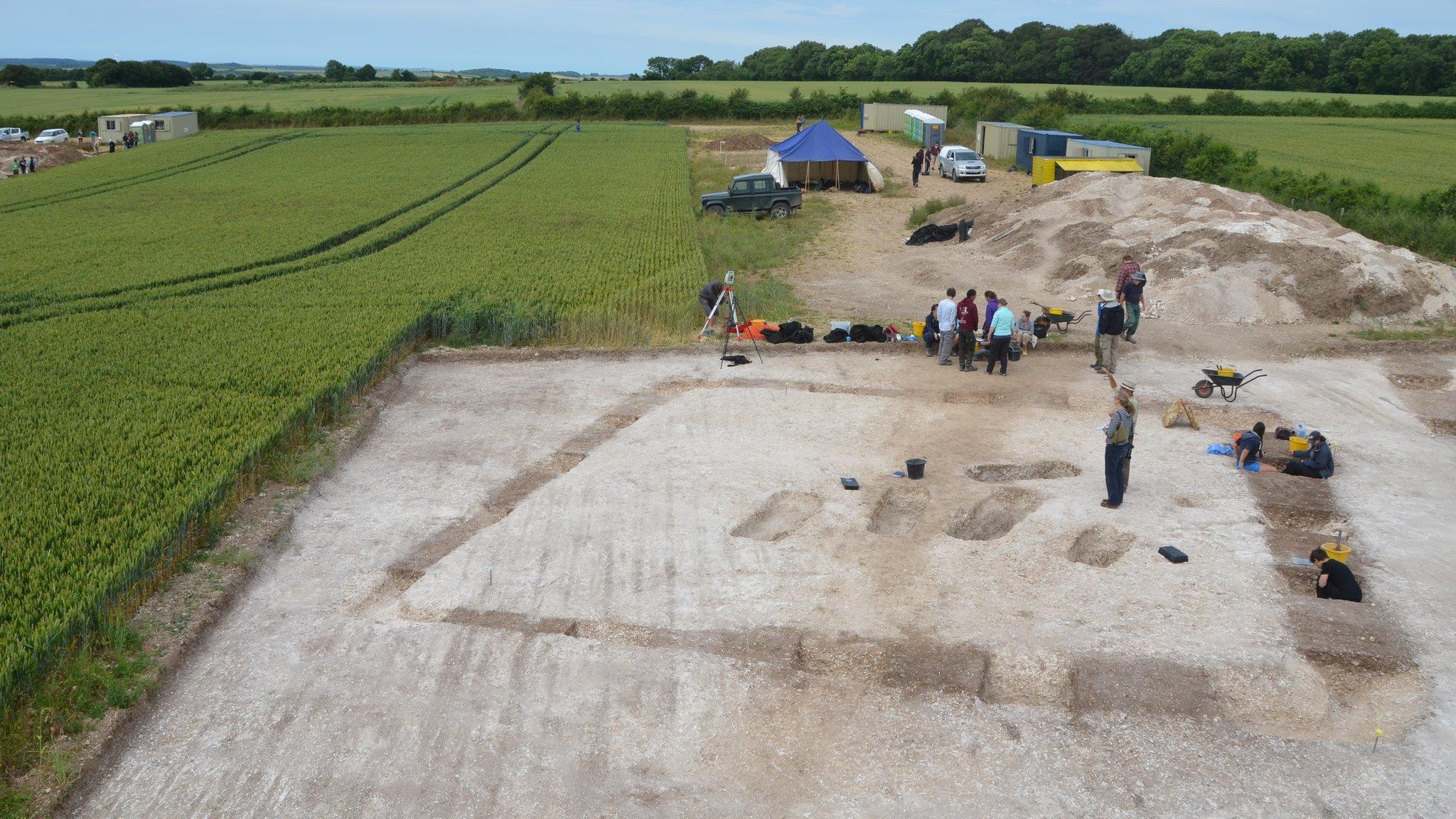
- Published19 June 2014
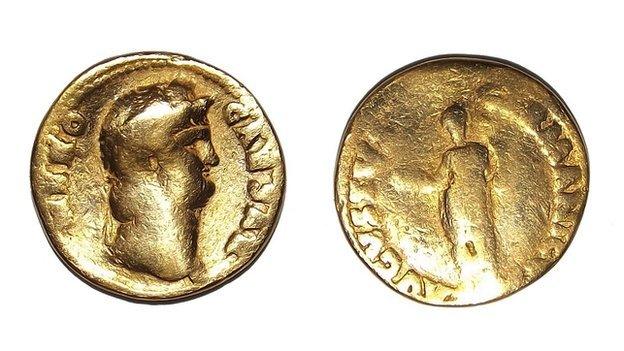
- Published1 May 2014
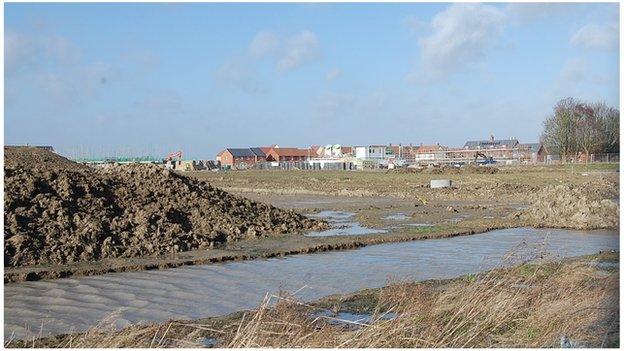
- Published3 May 2014
